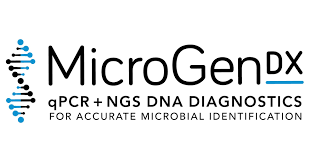-
Adrenal hormones play a vital role in overall wellbeing. Adrenal testing is a saliva test that looks at these hormones to assess any imbalances. Chronic stress on the adrenals can lead to symptoms such as fatigue, difficulty sleeping, anxiety, trouble losing weight and poor memory.
-
This test identifies genetic SNPs (variations) that influence health and disease risk. These specific SNPs may impact the function of important biochemical processes such as methionine metabolism, detoxification, hormone balance and Vitamin D function. Diet and nutritional supplementation can support any inefficient biochemical pathways in order to maximize metabolic pathway functioning.
-
Oxidative stress is adversely involved in many pathophysiological processes, aging and cancer. Oxidative stress can be measured by assessing levels of a specific compound in the urine (8-OHdG). Taking steps to reduce oxidative stress is valuable in optimizing health and longevity.
-
Discovering your body's IgG antibody reactivity to various foods is a valuable tool in identifying and addressing food sensitivities. These sensitivities can cause a range of symptoms, such as gastrointestinal discomfort, inflammation, headaches, and fatigue. By removing these reactive foods for a period of time and focusing on healing the gut, individuals can experience significant improvements in their overall health and well-being.
-
Detect and assess the status of pathogens, viruses, parasites and bacteria that may be contributing to acute or chronic gastrointestinal symptoms and disease. Imbalances in the gut microbiome, or dysbiosis, can be an underlying factor in many autoimmune diseases and neurological disorders, hence the gut-immune and gut-brain connections.
-
Hormones play a crucial role in weight regulation, metabolism, blood sugar control, insulin production, fat storage, and muscle mass. Hormonal imbalances can many times be an underlying cause of a variety of symptoms, including unexplained weight gain as we age. Testing hormone levels and gently restoring hormonal balance can resolve many associated symptoms and help both men and women feel their best.
-
Cardiovascular disease remains the top cause of mortality in the US, making it crucial to prioritize preventative measures. One significant risk factor for heart disease is metabolic syndrome. To ensure early detection and effective risk reduction, cardiometabolic test panels provide comprehensive profiles that include specific biomarkers tailored towards mitigating risks, enabling targeted support and intervention. By utilizing these test panels, individuals can take proactive steps to promote heart health and potentially mitigate the devastating impact of cardiovascular disease.
-
Standard cholesterol testing, while commonly used, may not provide a complete picture of one's cardiovascular risk. In-depth lipid testing, on the other hand, goes beyond just measuring cholesterol levels and takes into consideration additional proteins, ratios, and LDL particle sizes. By assessing these factors, along with cholesterol production markers, absorption markers, and genetics, a more accurate assessment can be obtained.
-
The analysis of key nutritional biomarkers, such as essential vitamins, amino acids, fatty acids, minerals, and other important elements, enables us to gain valuable insights into an individual's nutritional status. By identifying any deficiencies or imbalances, we can make targeted and customized recommendations for nutritional supplementation, ensuring that each person receives the precise support they need to optimize their health and well-being.
-
This is a crucial diagnostic tool that assesses elevated levels of toxic or potentially harmful metals within the body, helping to identify and address potential health risks. Elevated levels of these metals can negatively impact the functioning of nearly every bodily system. These toxic heavy metals can be found in various environmental sources, such as certain foods, medicines, and even water, with potential exposure occurring through skin absorption, inhalation, or ingestion.
-
This in-depth analysis sheds light on the intricate relationship between genetics and biochemical processes, metabolism, detoxification, and the predisposition to certain conditions. By exploring our genetic makeup and identifying any SNPs (genetic variations), we gain valuable insights that help us strategically provide our bodies with the necessary support. Understanding the genetic factors that influence our health empowers us to make informed decisions and tailor interventions to optimize our well-being.
-
Organic acids are important products of the body's metabolic pathways. Analyzing these downstream metabolites from different metabolic pathways can help assess gut health, mitochondrial dysfunction, neurotransmitter status, detoxification indicators, and macronutrient breakdown, giving professionals a comprehensive evaluation of nutritional status and functional needs. Hence, organic acid testing emerges as a valuable tool in determining the necessity of essential nutrients, dietary modifications, antioxidant protection, detoxification strategies, and other therapeutic interventions.















Advanced and specialty lab testing plays a crucial role in providing a comprehensive understanding of a patient's health by uncovering any hidden imbalances or abnormalities that may go unnoticed through regular testing. By delving into specific biomarkers and assessing the intricate interplay between various physiological systems, these advanced tests aid in identifying the underlying causes of health issues, supporting more targeted and effective treatment strategies.

